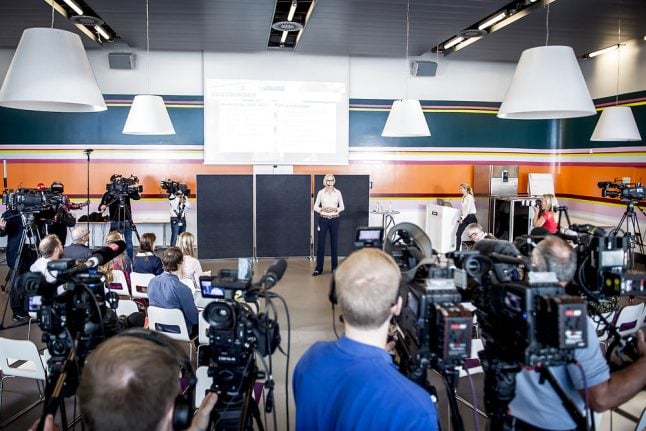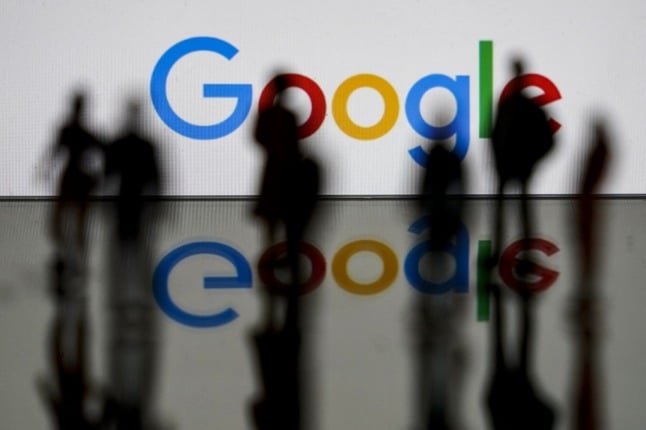The broadcaster, which is publicly funded by television licences, is required to cut its expenditure by 20 percent under a media bill passed by the government with the support of the Danish People’s Party (DF) earlier this year.
The cuts mean that DR’s six television channels will be scaled back to three. DR3 and DR Ultra will be reduced to streaming services by 2020, while cultural channel DRK will be merged with second station DR2, the broadcaster confirmed in a press statement.
Radio stations P6 Beat, P7 Mix and P8 Jazz will also all close due to the budget cuts as the number of radio channels is shrunk from eight to five.
READ ALSO: Danish broadcaster to merge, close stations as major cutbacks take effect
The broadcaster will see wide-ranging job losses with around 375-400 people likely to lose their positions, including 25 managerial positions, DR wrote on its website.
“A political decision has been taken to reduce DR’s expenditure by 20 percent. That will be tough, but we have taken on the challenge,” director general Maria Rørbye Rønn said in the press statement.
“The background (for the announcement) is both the necessary cuts and to ensure that DR can place even more focus on conversion to digital. In terms of content, we will now focus even more on our strengths. All in all, these are relatively drastic changes, but we think we’re on the right path,” Rønn added.
Commentators in the Danish media industry, as well as opposition politicians, criticised the cuts after details of their implementation and associated job losses were announced.
Mogens Jensen, deputy leader of the Social Democrats, wrote in a tweet that the “result of the government and DF’s media agreement” is a “historical degradation of Danish radio and television”.
Nu ser vi resultatet af regeringens og DF’s medieforlig: historisk forringelse af danskernes radio- og tv-tilbud. Uforståeligt at man skærer så hårdt ned på det vi er fælles om og svækker dansk sprog og kultur. @DRNyheder #dkpol #dkmedier #dkkultur https://t.co/NWXLXkPZpg
— Mogens Jensen (@MogensJensenS) September 18, 2018
Poul Madsen, executive editor-in-chief of tabloid newspaper Ekstra Bladet, lamented lawmakers’ “interventions in the details of news broadcasting in public service. (DF’s) intervention in (DR News) has unpleasant similarities with countries like Hungary and Poland.”
Det er aldrig en festdag når #dkpol i detaljer vil blande sig i nyhedsformidlingen i public service. @DanskDf1995 indblanding i @DRNyheder giver dårlige mindelser om lande som Ungarn og Polen. #dkmedier
— Poul Madsen (@pomaEB) September 18, 2018
In addition to cutting funds, a key point in the media bill is its requirement for DR to reduce its output of online written news coverage, focusing solely on bulletins and with in-depth and opinion pieces made the exclusive remit of private media organisations.
Social Liberal leader Morten Østergaard told Ritzau that the new media contract, which states that DR may not publish “long, in-depth articles” on its website, represents a “disturbing step that will challenge Danes’ confidence in independent and free media”.
“The government and Danish People’s Party have placed themselves in the editor’s chair with this new contract,” Rasmus Nordqvist, media spokesperson with the Alternative party, said according to Ritzau.
DF, which voted in support of the government to pass the bill, has clashed with the state broadcaster in the past, including over the 2014 historical drama series ‘1864’, which was interpreted by some as a criticism of the populist party’s anti-immigration stance.
DF parliamentary group leader Peter Skaarup rejected suggestions his party's support for the budget cuts was an act of revenge against DR.
“No, it is certainly not. It’s true there have been cases in which we don’t think DR has been even-handed enough. But this is, overall, about modernising DR,” Skaarup said to Ritzau.
“Whilst we have private media organisations and TV2, there is no reason for DR to produce a range of things the private sector can earn money from,” he said in relation to the limitation placed on DR's news output.
The announced cutback plan will, in fact, not be the only one to be undergone by the broadcaster – a second set of budget cuts must also be implemented in 2021.
Full details of the Ministry of Culture’s ‘public service’ agreement, which sets out the changes in full and sets out DR’s targets by 2023, were published on the ministry’s website on Tuesday.
READ ALSO: 'Danflix' could be Denmark's public service answer to Netflix



 Please whitelist us to continue reading.
Please whitelist us to continue reading.